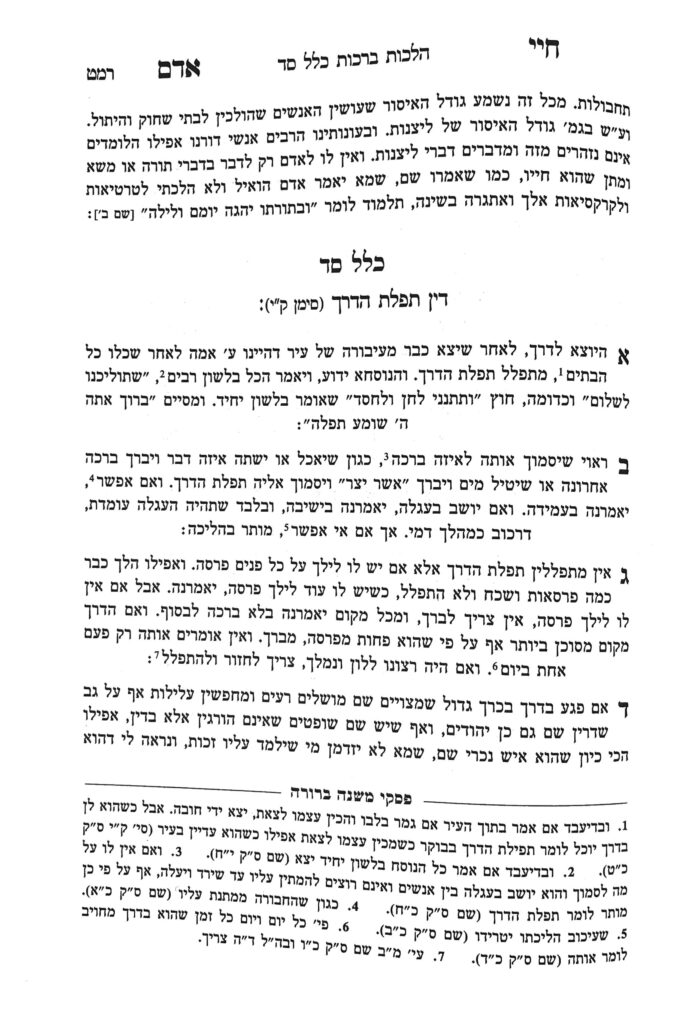We are continuing in siman 3. The Gemara states that the tefillas haderech was instituted due to the danger of the high roads. Although it is not certain there is danger, it can be assumed. However, within a parsah of the city, one can assume that there is less danger, as animals and bandits generally stayed away from the city area. However, if one knows that even the parsah adjacent to the city limits is dangerous, they should recite tefillas haderech. Similarly, although we learned that if one forgot to recite tefillas haderech, they may do so only until they are within a parsah of their destination city, if that final parsah is dangerous, they may still recite tefillas harech.
The poskim discuss that nowadays, we do not contend with wild animals, but we do grapple with car accidents. If so, maybe tefillas haderech should be recited every time one enters their car, because the danger is no longer confined to the high roads. However, the poskim write that we maintain the rules for tefillas haderech as they always were, and one only recites tefillas haderech when they travel outside of the city.
That being said, if a person is in an area adjacent to the city which is known to have dangerous driving conditions, they can apply the argument above of the Chayei Adam and recite tefillas haderech.
The Biur Halacha raises the question that, given that many cities are found near the road, maybe a person does not recite tefillas haderech even if they travel a parsah out of their own city, since they are always within a parsah of other cities, and therefore in a safe place. However, in conjunction with the concern of car safety, one may recite tefillas haderech, even with a bracha, in such a situation.
Summary
- Although we have learned that within a parsah of a person’s destination city they can no longer recite tefillas haderech, if that parsah is fraught with danger, they may still recite it.
- Similarly, if a person is traveling less than a parsah out of the city, although they generally do not recite tefillas haderech, if the area is fraught with danger, they would recite it.
- if a person is in an area of a city which is known to be dangerous, they may recite tefillas haderech.
- If one leaves their city, even if there are cities contiguously adjacent to it, they may recite tefillas haderech in conjunction with the concern for car safety.



